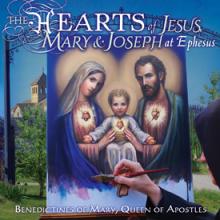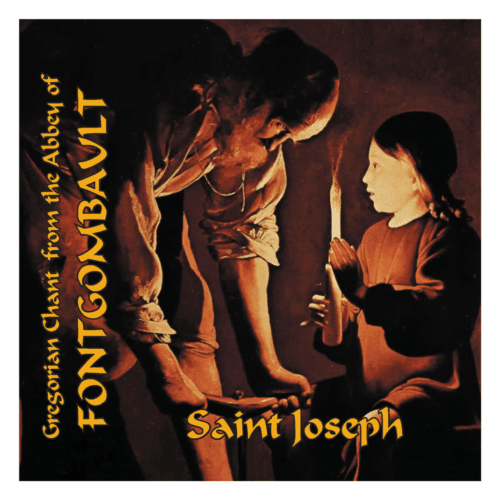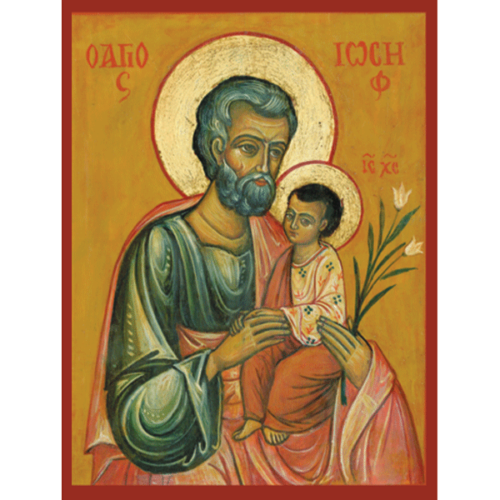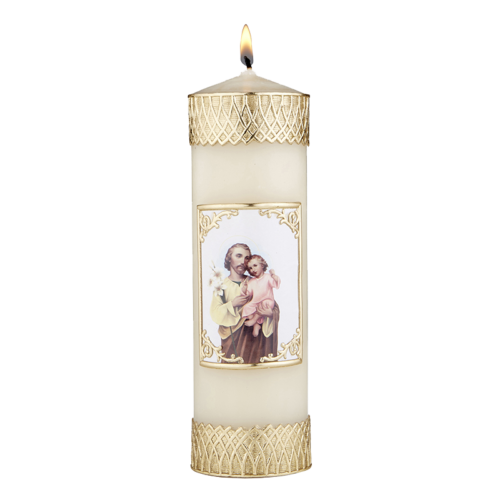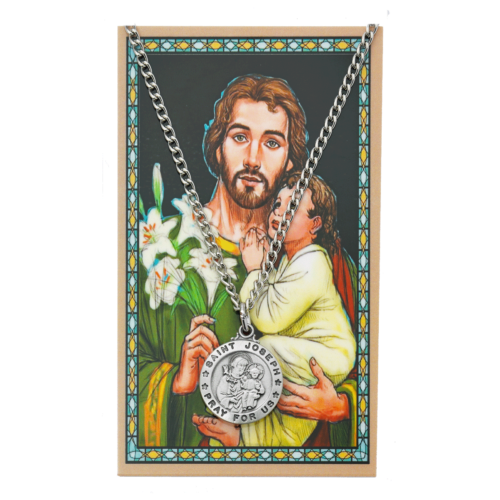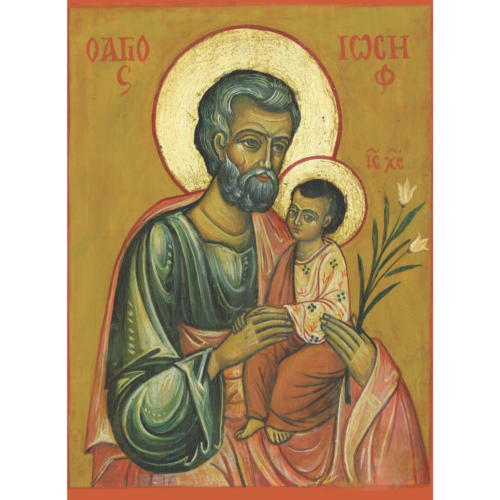Dear Friend of Clear Creek Abbey,
Here is a spiritual arrow, well drawn and well aimed, offered in the fight for Catholic Christian sanity, on the occasion of Father’s Day 2024.
— br. Philip Anderson, abbot
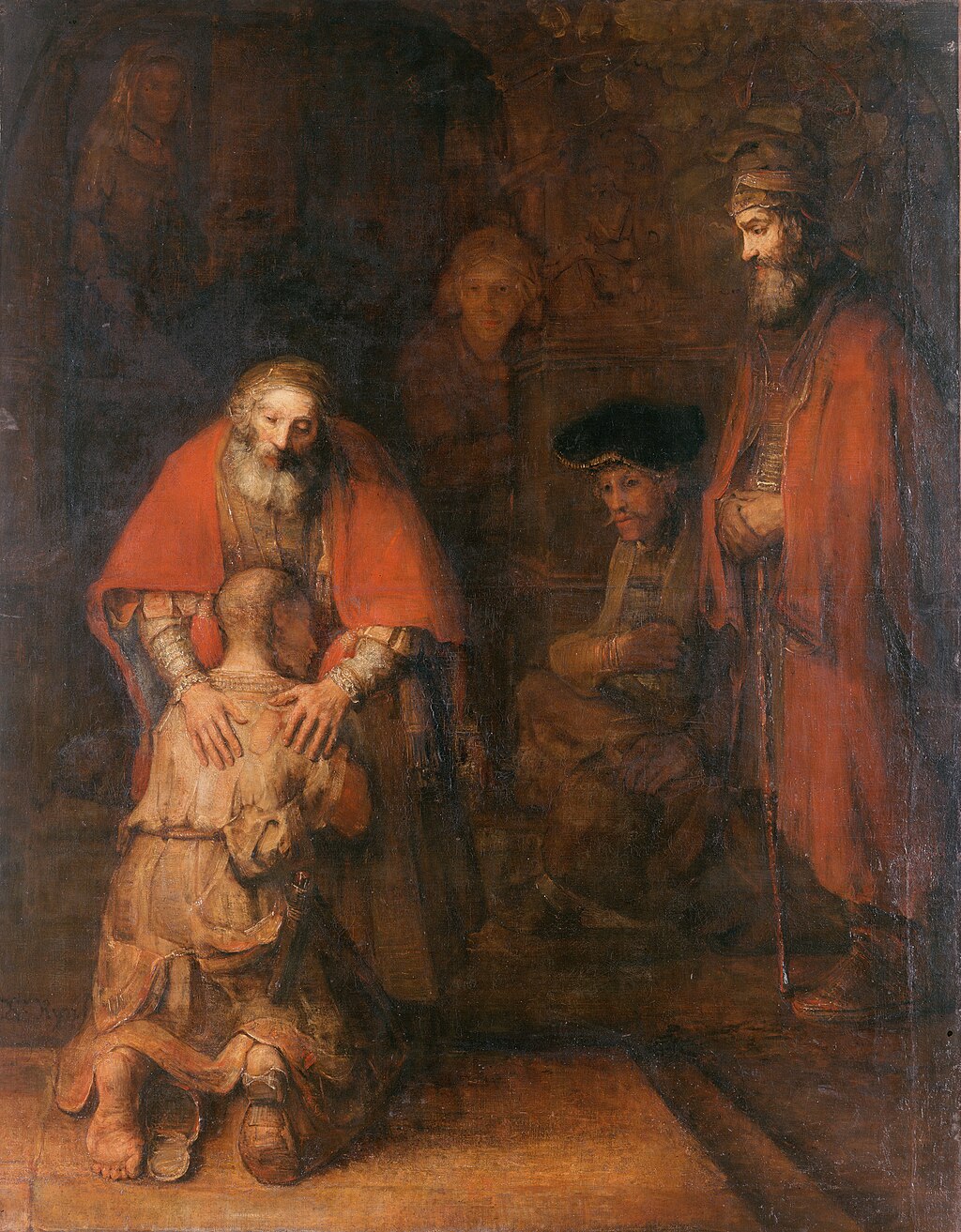
With Father’s Day upon the horizon, a few lines from the French poet, Charles Peguy,1Cf. John Saward’s remarkable book The Way of the Lamb: The Spirit of Childhood and the End of the Age, in which the author gives his opinion on page 96 that Peguy, while not a saint, was a prophet in the strict sense of the term. seem appropriate:
There is only one adventurer in the world, as can be seen very clearly in the modern world, the father of a family. Even the most desperate adventurers are nothing compared to him.
Everything is against him.
Savagely organized against him.
Everything turns and combines against him. Men, events, the events of society, the automatic play of economic laws. And in short, everything else. Everything is against the father of a family, the paterfamilias, and consequently against the family. He alone is literally “engaged” in the world, in the age. He alone is an adventurer.2Essay entitled “Clio” in Temporal and Eternal (Harper and Brothers, New York, 1953).
From the Protestant Revolution with its revolt against the Pope as the common father of Christendom, to the French Revolution with its war against altar and throne, its murder of priests (spiritual fathers) and of the king (father of his country3“The ruler of a household is called father, not king, although he bears a certain resemblance to a king, for which reason kings are sometimes called fathers of their peoples.” – St. Thomas Aquinas, De Regno, ch. 2, no.14.), to the Communist Revolution and its hatred of the family, and to the Sexual Revolution with its undercutting and elimination of the father, and finally to today’s media with its commentaries and comedies and cartoons which hold up either tyrannical or bumbling caricatures, the modern age seems characterized by the hatred and mockery of the father.
The twelfth chapter of St. John’s Apocalypse shows us the great red dragon (v.3) unable to conquer the woman (v.15), and so he goes to make war on the rest of her children (v.17). Perhaps by analogy we could say today that the world, hating the Eternal Father but unable to get at Him, makes war on all those who are called fathers (and their children too), fathers who take their title from Him, the One from Whom all paternity derives its name (cf. Eph 3:15). The dragon manifests itself differently in different ages of the Church, and today the dragon is often pink.
Why this conspiracy of hatred versus the father? Robert Cardinal Sarah gives us a clue to the answer:
I wonder how children will be able to pray the Our Father if they no longer have the intimate experience of a benevolent, just father. The father of a family is the first image of the Eternal Father. This is not the least of his claims to glory.4The Day is Now Far Spent, Ignatius Press, San Francisco, 2019, p.173.
Children learn of God the Father from their earthly father, who is a very rough sketch even at his best, but this is the way of things. Those who would remove God from the world are cunning enough to try to suppress the father: do this, and will anyone be able to say the Paternoster? A link has been cut. And this may perhaps touch upon the Ave Maria too, at least as the good Cardinal Sarah says of his own experience:
My father taught me great love for the Virgin Mary. I can still see him kneel down on the sand of Ourous to pray the Angelus every day at noon and in the evening. I never forgot those moments when he closed his eyes to give thanks to Mary. I imitated him and recited my prayers to the Mother of Jesus at his side. 5God or Nothing, Ignatius Press, San Francisco, 2015, p. 165.
Fathers, there is a need to rediscover your mission, and its multi-faceted nature,6“…paternity exists only among beings who live and who know…. [H]e who communicates an act of life can be called a father. Therefore, whoever stimulates another to some vital act, whether it be to good activity, to understanding, to willing or loving, can be given the name of father. ‘For if you have ten thousand instructors in Christ, yet not many fathers’ [1 Cor. 4:15]. Likewise, in the hierarchical acts by which one angel illumines, perfects, and purifies another, it is evident that that angel is the father of the other—just as a teacher is the father of his disciples.” -St. Thomas Aquinas, Commentary on Ephesians 3. Also, Cardinal Sarah says that “the masculine soul is characterized by his vocation to fatherhood in all its forms, carnal, spiritual, intellectual or artistic.” –The Day is Now Far Spent, p.172). in the face of unprecedented opposition. This opposition is actually a kind of “backhanded compliment” from the world: as mentioned above, they are trying to kill the Father, but can only take it out on you. So don’t take it personally; rather, you should take it as a compliment. And St. Joseph is coming forward in new ways to help you in all of this, notably with the flowering of devotion to his Most Chaste Heart. Above all, Christ is saying to you: “If the world hates you, know that it has hated Me before it hated you…. they have both seen and hated both Me and My Father… In the world you shall have distress, but have confidence: I have overcome the world… Arise, let’s go” (John 15:18, 24; 16:33; 14:31).
So here’s to all the valiant adventurers out there, men audacious enough to marry a woman and fearless enough to stay married to her, strong enough to practice fidelity to her in act and thought and imagination and internet use, bold enough to beget children,7“The boldest people are those who are rightly related to divine things.” Summa Theo., Ia, IIae, q.45, a.3 dauntless enough to form those children in nature and intrepid enough to govern them in grace,8“It belongs to a father to beget and to govern.” – Patris est producere et gubernare. Ibid., IIa,IIae, q.81, a.3, c. hearty enough to give life and hardy enough to take the world’s contempt, courageous enough to fight the various dragons found both inside and outside oneself, to procreate a new generation of the living and of those who will inherit the earth. As the motto of the elite British special forces unit, the SAS, has it: “Who dares, wins.”
– A Monk of Clear Creek
- 1Cf. John Saward’s remarkable book The Way of the Lamb: The Spirit of Childhood and the End of the Age, in which the author gives his opinion on page 96 that Peguy, while not a saint, was a prophet in the strict sense of the term.
- 2Essay entitled “Clio” in Temporal and Eternal (Harper and Brothers, New York, 1953).
- 3“The ruler of a household is called father, not king, although he bears a certain resemblance to a king, for which reason kings are sometimes called fathers of their peoples.” – St. Thomas Aquinas, De Regno, ch. 2, no.14.
- 4The Day is Now Far Spent, Ignatius Press, San Francisco, 2019, p.173.
- 5God or Nothing, Ignatius Press, San Francisco, 2015, p. 165.
- 6“…paternity exists only among beings who live and who know…. [H]e who communicates an act of life can be called a father. Therefore, whoever stimulates another to some vital act, whether it be to good activity, to understanding, to willing or loving, can be given the name of father. ‘For if you have ten thousand instructors in Christ, yet not many fathers’ [1 Cor. 4:15]. Likewise, in the hierarchical acts by which one angel illumines, perfects, and purifies another, it is evident that that angel is the father of the other—just as a teacher is the father of his disciples.” -St. Thomas Aquinas, Commentary on Ephesians 3. Also, Cardinal Sarah says that “the masculine soul is characterized by his vocation to fatherhood in all its forms, carnal, spiritual, intellectual or artistic.” –The Day is Now Far Spent, p.172).
- 7“The boldest people are those who are rightly related to divine things.” Summa Theo., Ia, IIae, q.45, a.3
- 8“It belongs to a father to beget and to govern.” – Patris est producere et gubernare. Ibid., IIa,IIae, q.81, a.3, c.


